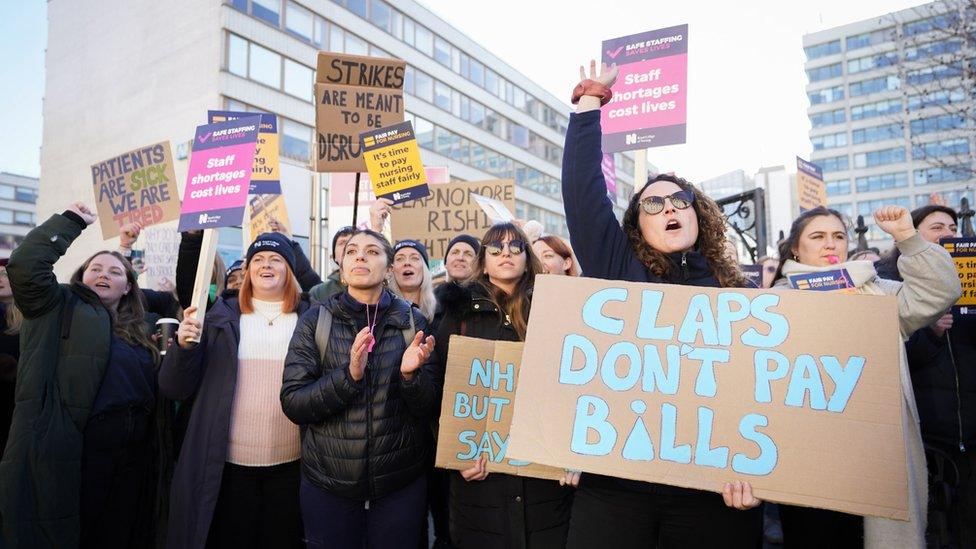Nurses out on strike in half of England’s NHS
- Published
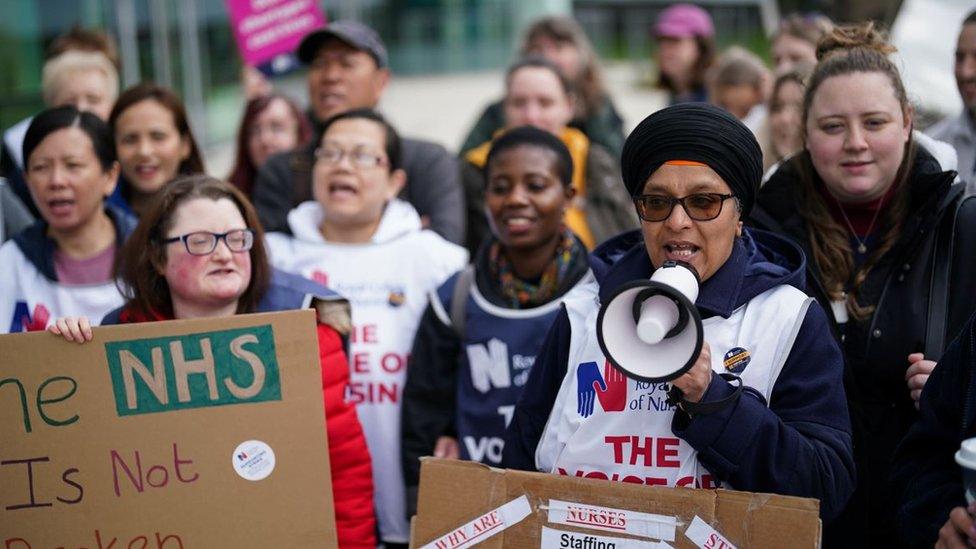
Nurses across the country are on picket lines in protest over pay
Nurses in England are taking strike action in half of England's hospitals, mental health and community services.
The walkout lasts until midnight on Monday, with NHS bosses warning services would be badly disrupted.
It is the first time Royal College of Nursing members have walked out of all areas, including intensive care.
One hospital trust said it had to move intensive care patients to other areas because nurses refused to work, despite an exemption agreement with the RCN.
The RCN said it had agreed some last-minute exemptions so nurses could be pulled off the picket line to ensure life-preserving care was provided.
But NHS England warned patients to expect "disruptions and delays to services over the strike period".
It said that staffing levels for some areas would be "exceptionally low, lower than on previous strike days".
The NHS is advising people who are seriously ill or injured to call 999 as usual, but non-urgent cases should call 111.

'This is difficult - nurses cannot be replaced'
Dr Jacob Mushlin, an accident and emergency consultant at Bradford Royal Infirmary, said the absence of nurses would create delays and lower the standard of treatment at his hospital and across the country.
"The nurses provide a vital service and one that can't be replaced by other members of staff," he said.
"We're going to find that we're going to be unable to provide anything other than life- or limb-preserving care."
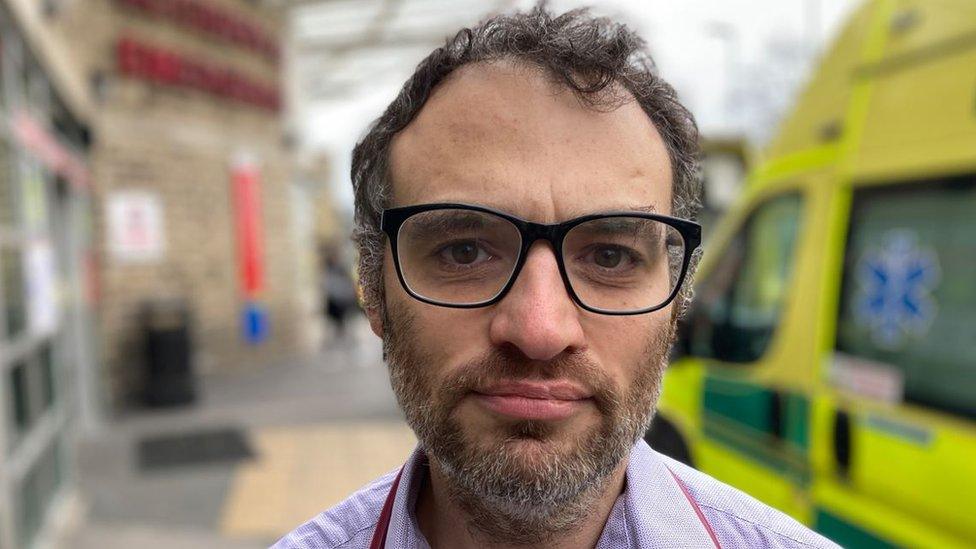
Dr Mushlin said nurses could not be replaced by other members of staff
Dr Mushlin also said he had seen a rising number of cases of "dreadful" aggression and violence towards hospital staff increasing because of long waiting times in the NHS, which was severely affecting morale.
"It has a massive impact on our staff, on staff burnout, staff morale," he said.
"Ultimately we risk losing members of staff."

RCN general secretary Pat Cullen said the union would ensure life-and-limb cover would be provided.
All hospitals have been guaranteed a minimum level of cover for intensive care and trauma.
Around a quarter of trusts involved in the strike have been given extra exemptions for services such as transplant and cardiac care - to allow them to call in some striking nurses because they have not been able to find other staff to fill the rotas.
This is to ensure a minimal level of cover - not normal staffing - as the RCN has to abide by trade union rules to ensure life-preserving care can be provided during a walkout.
But Nick Hulme, who leads East Suffolk and North Essex NHS Foundation Trust, said his trust had to transfer intensive care unit patients to hospitals outside Colchester because nurses refused to work, despite the exemption agreement.
He told BBC Radio 4's The World At One the trust had hoped for a ratio of two patients to one nurse, which he described as "not ideal but safe", but they were not able to find enough nurses to even run it at that level.
"The RCN asked the nurses to come in to cover that area - not to the staffing levels that we would normally have but to safe staffing levels - but unfortunately the nurses decided, as is entirely within their right, they are not obliged to turn up even if we ask them with the RCN," he said.
"Unfortunately we weren't able to get sufficient nurses to cover the ITU [intensive therapy unit] area, so we had to reduce the capacity significantly and transfer patients out."
He added there was no risk to patients who would have to travel a little further away from Colchester, and it was "not unusual" to move patients.
In previous walkouts, services such as intensive care, chemotherapy and dialysis have been excluded from strike action.
MS Cullen said it was regrettable strike action had to be taken but added that the government needed to improve its pay offer.
"Only negotiations can resolve this and I urge ministers to reopen formal discussions with the RCN.
"Nursing staff are looking for a fair settlement that shows the government values and understands their profession.
"We appear a long way from that currently but I remind ministers it is entirely in their gift."
This latest 28-hour action comes ahead of a crucial meeting between a number of health unions, ministers and NHS bosses on Tuesday, when the government's pay offer of 5% will be discussed.
RCN members rejected the offer and announced this new strike - their third this year - but other unions have accepted it.
Health Secretary Steve Barclay described the RCN's decision to press ahead with its strike as "premature" and disrespectful to other unions taking part in Tuesday's meeting.
Ministers and NHS chiefs had previously warned patient safety would be put at risk.
On Sunday, the health secretary said the strikes would put "more pressure on the NHS and will be incredibly disruptive for patients".
The walkout was originally supposed to continue into Tuesday but a High Court judge ruled it would be unlawful because a six-month mandate for action had expired.
During nursing strikes earlier this year, in January and February, wider national exemptions were in place, meaning nursing cover was maintained in other critical areas.
On Monday, Unite members at the Yorkshire ambulance service and Guy's and St Thomas' NHS Trust in central London are also walking out and staging a protest march in central London.
On Tuesday, Unite members at South Central, South East Coast and West Midlands ambulance trusts alongside workers at the Christie NHS Foundation Trust and Pathology Partnership, East Lancashire Hospitals NHS Trust and Sandwell and West Birmingham NHS Trust will all take part in industrial action.
Unite national lead Onay Kasab told BBC Radio 4's Today programme that the union would continue industrial action if the health secretary attempted to impose a pay offer.
"We will ballot, and where we have current mandates - some of them lasting up to September - then we will continue taking action, and we will escalate," he said.
He said the ongoing disruption was "a national crisis" and urged Prime Minister Rishi Sunak to get involved to resolve it.
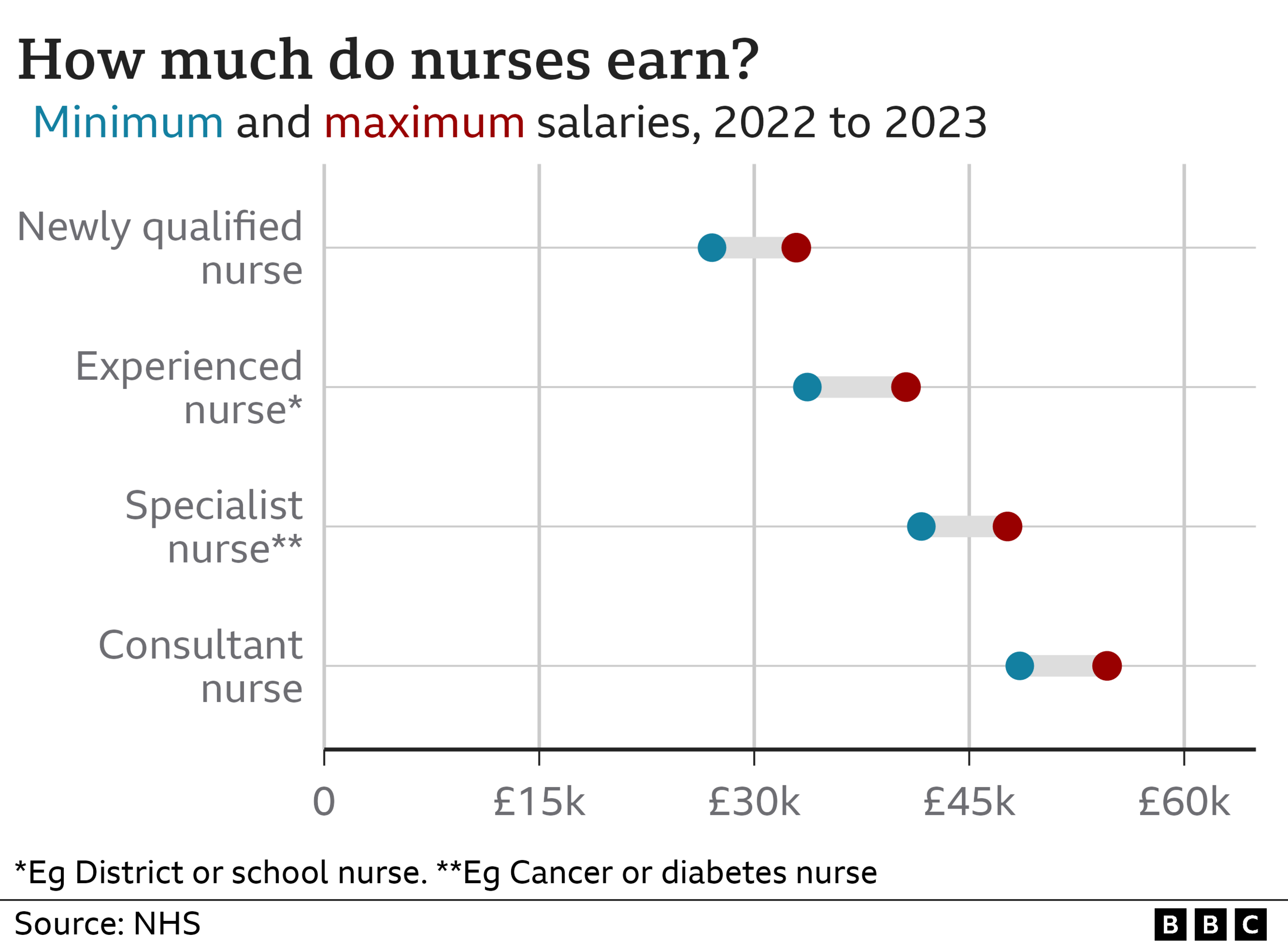

Are you affected by issues covered in this story? Share your experiences by emailing haveyoursay@bbc.co.uk, external.
Please include a contact number if you are willing to speak to a BBC journalist. You can also get in touch in the following ways:
WhatsApp: +44 7756 165803
Tweet: @BBC_HaveYourSay, external
Please read our terms & conditions and privacy policy
If you are reading this page and can't see the form you will need to visit the mobile version of the BBC website to submit your question or comment or you can email us at HaveYourSay@bbc.co.uk, external. Please include your name, age and location with any submission.
Related topics
- Published30 April 2023
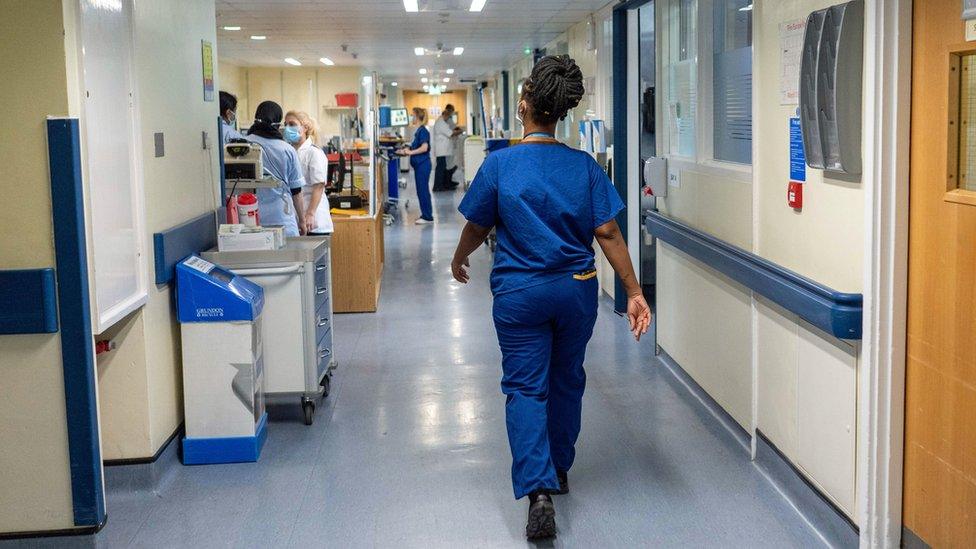
- Published30 April 2023
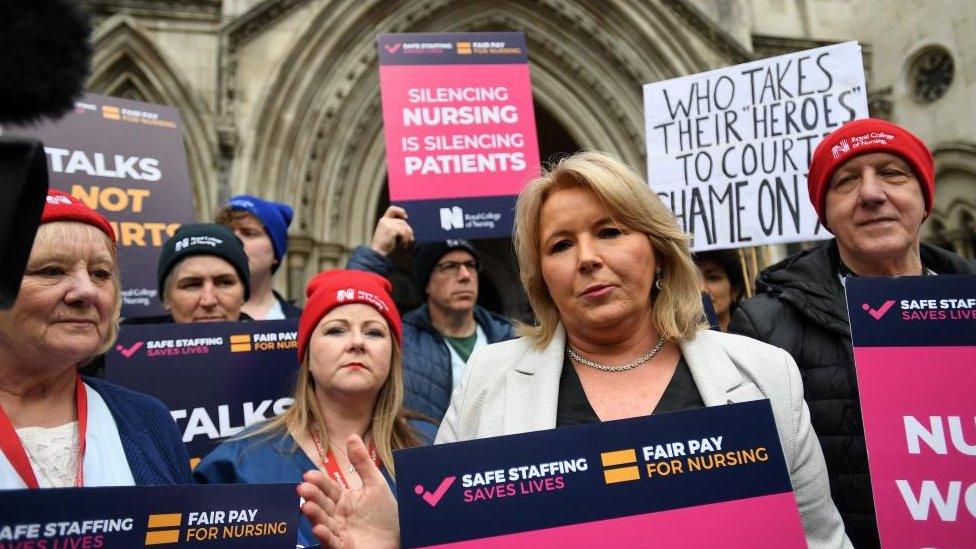
- Published28 April 2023
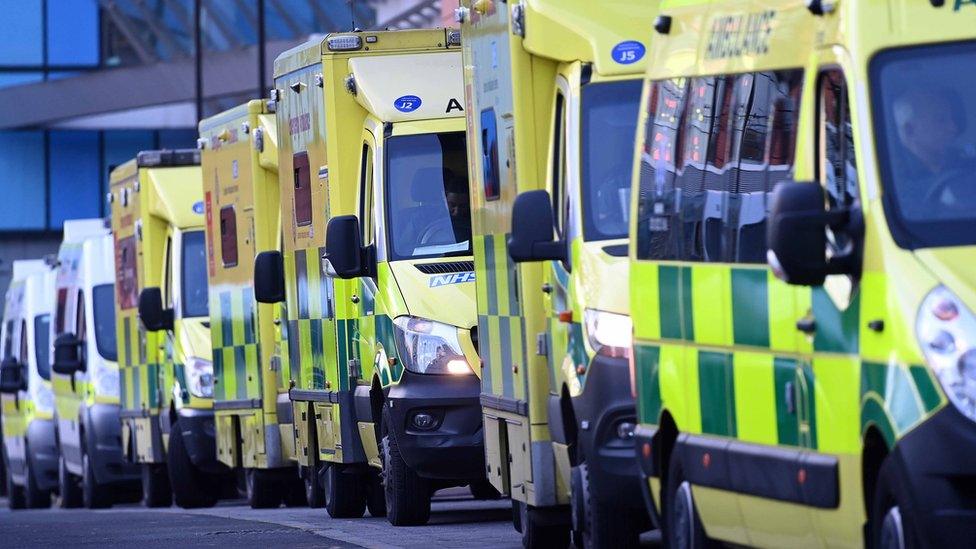
- Published15 April 2023
